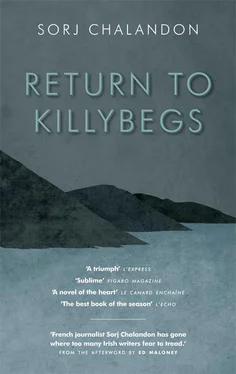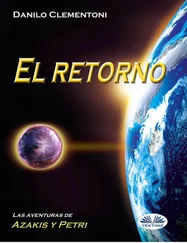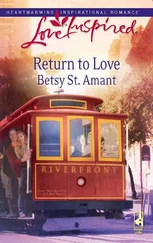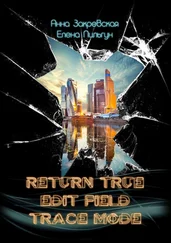— The Jerries? You know… the Krauts, the Fritz, time to wake up, sonny!
— The Germans, my uncle whispered.
The soldier patted down my back, between my thighs and under my arms, which were stretched out on either side of me.
— Don’t you know we’re at war?
— Yes, I know that.
He opened my bag and stuck his hand inside as though it were his own.
— No, you don’t. You know nothing, you Irish. Not a bloody thing! spat the soldier who was searching the truck.
He was the real thing. An Englishman from England. My father often used to imitate their way of speaking, upper lip stuck to his teeth and the same ridiculous intonation as the men on the radio.
— Don’t look me in the eye, you cheeky Irish brat! Turn around. Turn around all of you, hands in the air and face against the tarpaulin!
My uncle forced me to turn around. We put our hands up.
— Your thing is shooting us in the back, isn’t that it?
I sensed him behind me.
— Bet you were delighted when those IRA bastards declared war last year?
I didn’t reply.
— You know they plant bombs in cinemas in London, in Manchester? In post offices? At train stations? Have you heard about that? What do you think of that, you Irish?
— He’s only sixteen, my mother let out.
— Shut up, you! I’m talking to the little snot here.
— Let it go, the other soldier murmured quietly.
He made me turn around again, lower my arms. He gave me back my messed-up bag.
— You’re coming to help us win the war, is that it, snot-nose?
I looked at his muddy shoes. I thought hard of my father.
— Because if not, there’s nothing to see over this side.
I met his eyes again.
— Traitors are hanged. We’ve enough to be doing with Hitler, got it?
He raised his voice.
— Right! Listen to me. You’re entering the United Kingdom. There’s no de Valera here, no neutrality, none of your papist bullshit. If you don’t agree you can just turn right around now!
I met Lawrence’s silent look. It warned me to keep my mouth shut, forehead still pressed against the tarp, arms still raised.
So I lowered my head, like him, like Mother, like my brothers and sisters. Like all the Irish waiting on the roadside.

My uncle lived close to Cliftonville in the north of Belfast city. It was a Catholic ghetto, a nationalist bastion surrounded by neighbourhoods full of Protestants loyal to the British monarch. He was a childless widower and owned two houses next door to each other with an adjoining yard. The first was his chimney-sweep workshop and he lived in the second. I’d never seen streets as narrow, or such bleak, straight, endless rows of brick. Each family had its shoebox, strictly identical. A front door, two windows at street level, two on the first floor, a slate roof and a tall chimney. There were none of the coloured facades you’d see at home in those striking greens, yellows or blues. Just dark Belfast brick, dirty red in colour, and the window curtains that were the only friendly feature. Even the Virgins praying against the panes were the same in every house, blue and white plaster and bought from Hanlon’s, the local grocery.
We lived at 19 Sandy Street. My mother settled in with Róisín, Mary, Áine and baby Sara in one of the upstairs rooms. Wee Kevin, Brian and Niall took the other one, with the window overlooking the yard. Seánie and I had placed our mattresses in the living room on the ground floor. We tore up and down the narrow stairway, laughing, we took over the space. The glass was missing from the kitchen window and had been replaced with a piece of wood. Everything was damp, the wallpaper was peeling, the chimney drew poorly, but we had a roof over our heads.
For our first evening in Belfast, Lawrence had made a mutton and cabbage stew. From now on he’d stay in his workshop but would keep our key. People locked their doors in Belfast. We sat down on the floor, on the mattresses, in the armchair and on the couch, our plates on our knees. I was hungry. My uncle said grace in his own way.
— My Lord, let our plates be always full, and our glasses always topped up. May the roof over our heads remain solid enough. And may we get to heaven a wee half-hour before the devil learns we’re dead. Amen.
Mother raised her eyes to heaven. She didn’t like anyone joking about hell. We blessed ourselves. I immediately liked this man. He cut the bread and shared it out fairly.
— Thank Uncle Lawrence, Mother said as she cleared away our plates.
— Thank you, Uncle Lawrence!
He didn’t reply. He rarely replied. Wee Kevin asked him one day if his lips were glued together. I think he smiled.
Seánie wanted to go out but Mother asked him to stay in front of the house. I went with him. It was almost a soft evening, only a light drizzle. Groups of men stood talking, dotted all over the street, leaning against the walls. Every time someone passed, the others would greet him. They all addressed one another by their first names. It was the same in our village.
I’d just turned sixteen. And that evening, the first of my new life, in an Ireland that still wasn’t mine, I met Sheila Costello. She was fourteen and lived in the house to the left of ours heading up the street. She was tall. She had short, black hair, liquid-green eyes and that smile. For a few bob my sister Mary would soon be minding her sister in the evenings when their parents went to the pub. I kissed Sheila a few days later, one Sunday, in the dark, just after the Angelus. She had bent her head slightly so our lips could meet. She told me that a kiss was nothing, that you shouldn’t do it again or go any further. And then she called me ‘wee man’. That’s how she became my wife.

— Don’t you know we’re at war? the Englishman had asked me.
That evening, 15 April 1941, we learned it.
We had just gone to bed. Sheila’s image was flashing behind my eyelids when I closed my eyes. She said I had a ‘country’ accent. I wanted to try my best to imitate hers. I was sinking into my night, Seánie’s back against mine, pushing away his cold leg. Suddenly everything shook. There was an unholy din, a crash of steel, of smashed metal, very low above the houses.
— Fuck, those are planes! my brother said.
He got up, looked at the ceiling. He switched on the light. We could hear the screech of sirens. Panic on the stairs. A terrified rabble. Mother was grey, baby Sara in tears, my sisters in their night faces. Wee Kevin’s mouth hung open, Niall had a crazed look. Uncle Lawrence came in and asked us to get dressed quickly. The first bomb knocked Brian to the floor, just the noise. My brother fell flat on his back, his eyes rolled back in his head. Lawrence gathered him up in his arms. He spoke loudly and rapidly. He said we had nothing to fear. That the German planes had already come but that they didn’t bomb our neighbourhoods, that they attacked the city centre, the port, the stations, the barracks, the rich but not the destitute.
— Not the poor! Don’t kill the poor! my mother prayed, going out to the street.
We had reformed our pathetic caterpillar, each of us clinging to the other by the corner of a garment. Lawrence was at the head of the line. Families were spilling out, leaving their doors open. Fear distorted their faces. It was almost midnight. The moon was full, the clear sky had stripped the city. The planes were above us, below us, overwhelming our senses, roaring right inside our bellies. We didn’t dare look at them. We lowered our heads for fear of being struck by their wings. The city was burning in the distance, but none of our houses was alight.
Читать дальше













